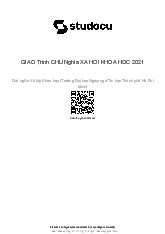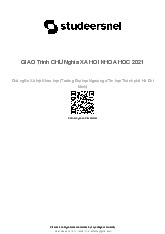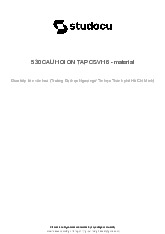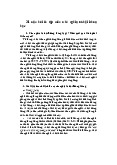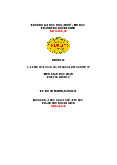


Preview text:
15:56 10/8/24 Homework 1 - Method
Task: Summarize the Grammar-Translation Method, Direct Method, and Audio-Lingual Method
Grammar - Translation Method 1. Definition :
+ Emphasizes reading comprehension, writing skills, and understanding grammar rules.
+ Often used for teaching classical languages or for learners focused on literary texts. 2. Techniques:
+ Relies heavily on translation exercises, memorization of vocabulary, and grammar rules. 3. Advantages:
+ Emphasis on grammar: Students gain a deep understanding of
grammatical structures and rules.
+ Literary Appreciation: It helps in understanding and appreciating
classical texts, enhancing reading comprehension.
+ Structured Learning: offers a systematic approach to learning a
language, providing clear guidelines and rules. 4. Disadvantages:
+ Limited communication skills: Neglects speaking and listening skills.
+ Lack of real-life application: doesn’t prioritize practical language use in real-life situations.
+ Translation dependency: encourages reliance on translation, which
may inhibit natural thinking in the target language.
+ Boredom and lack of engagement: Repetitive translation exercises
may lead to disinterest among students. about:blank 1/3 15:56 10/8/24 Homework 1 - Method The Direct Method 1. Definition:
+ Intends for students to learn how to communicate in the target language.
+ Based on the assumption that the learner should experience the new
language in the same way as he/she experienced his/her mother tongue
without considering the existence of his/her mother tongue. 2. Techniques: + Question/answer exercise + Dictation + Reading aloud + Self-correction + Conversation practice + Paragraph writing 3. Advantages: + Improves fluency of speech + Aids reading
+ Emphasizes the target language by helping the students express their
thoughts and feelings directly in the target language without using their mother tongue. 4. Disadvantages:
+ Less suitable for slow learners.
+ Ignores systematic written work and reading activities.
+ Does not teach grammar systematically. about:blank 2/3 15:56 10/8/24 Homework 1 - Method Audio - Lingual Method 1. Definition:
+ Students listen, then repeat when teacher orders
+ Emphasize speaking and listening skills. 2. Techniques: + Repetition:
+ Inflection: students repeat what the teacher said, then the teacher
changes one word within that pattern, and students repeat it.
+ Replacement: teacher would say a pattern, and the students would
repeat it. They would change one word in that pattern and then say it. + Restatement: paraphrase 3. Advantages:
+ Emphasis on speaking and listening skills
+ Develop communicative competence + Error correction + No mother tongue 4. Disadvantages: + Meaning is neglected + The learner is passive + Lack of creativity
+ Lack of emphasis on cultural aspects about:blank 3/3
